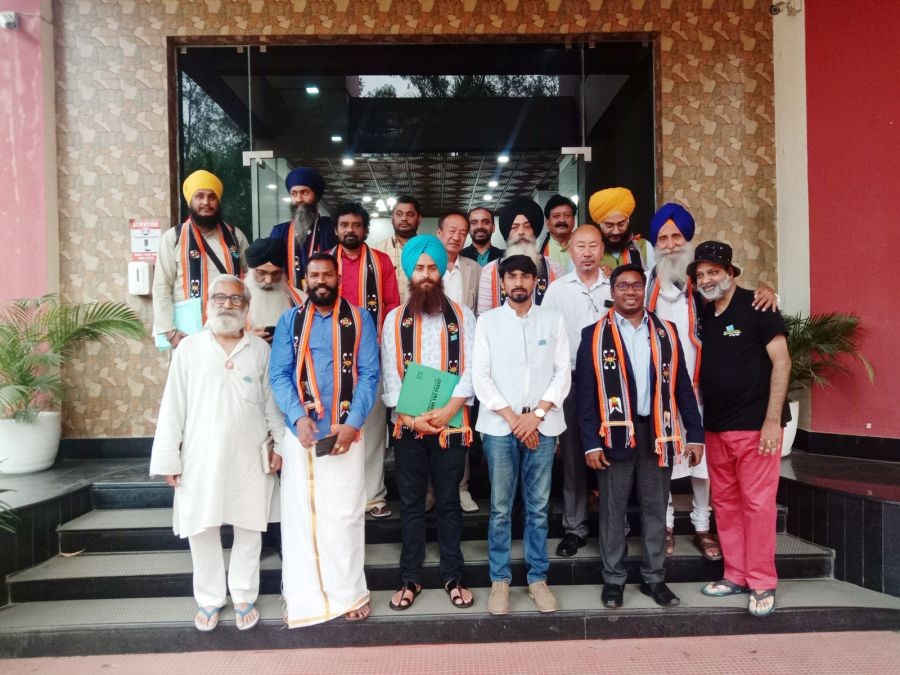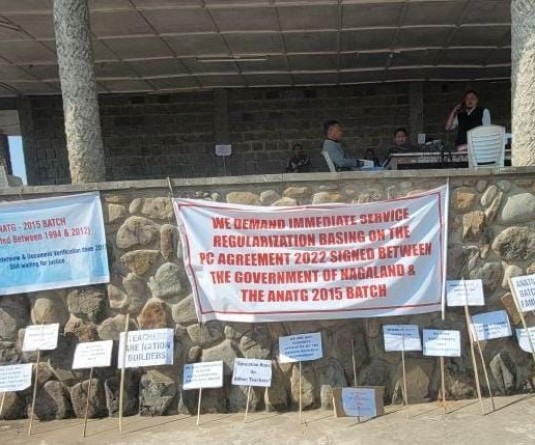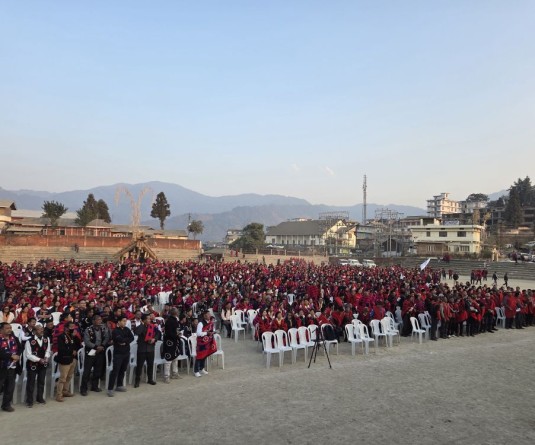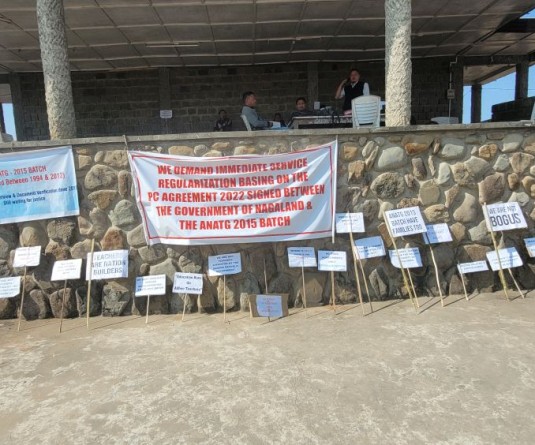Delegates at the Nagaland leg of the Save the Peace conclave, an initiative of the NPMHR, to drum up support for saving the Indo-Naga political negotiations. (Morung Photo)

‘Naga NPGs should not work against each other’
Morung Express News
Dimapur | March 25
Save the Peace— a movement initiated by the Naga Peoples’ Movement for Human Rights (NPMHR) held its fourth conclave in Dimapur on March 24 and 25. According to the NPMHR, the conclave was a continuation of an initiative, which was started in September 2021 together with likeminded “friends from different parts of the Indian subcontinent” to save the Indo-Naga political negotiations from breaking down.
NPMHR Secretary-General, Neingulo Krome told a press conference today that the Dimapur conclave was a follow up to three other such meets, the first of which was held in Delhi, followed by the second in Chennai in October 2021 and the third in Amritsar in December.
“As a follow up of these processes, NPMHR has today invited them to Nagaland… There are human rights groups, there are academicians, lawyers, political party workers (and) activists,” was how he described the history of the conclave and the delegates.
In the list of delegates/organizations were five from Punjab— Dal Khalsa, All Sikh Students Federation, Sikh Siyasat, World Sikh News, Panthak Tal Mail Sangathan and Panth Sewak Jatha; three from Madhya Pradesh— Jan Pahal, Adivasi Bachao and Kisan Mazdoor Chetna Sangathan; three from Tamil Nadu— Thamilar Nalam Periyakam, Naam Tamilar Katchi and Maruthu Makkal Iyyakam; two from Uttar Pradesh— Social Party of India and Rihai Manch; two from Delhi— Samajwadi Chhatra Sabha and National Front for Tribal Self Rule; two from Bihar— Rashtra Janata Dal and Students for Resistance; besides the Kashmir Human Rights and Arunachal Naga Students Federation.
They were here “in our land in their effort to help the Nagas that the peace process is not broken,” Krome added.
In line with the conclave’s professed objective, he informed that a three-point resolution was adopted “urging the need that this peace process must be continued.” It included the Prime Minister taking direct control of the protracted Indo-Naga political negotiations, standing by the Framework Agreement (FA) of August 3, 2015 and supporting/protecting the talks “till it achieves the desirable goal of honourable and lasting peace for both the parties.”
It termed the FA “a solemn commitment within the Naga people and the GoI to bring about a dignified peace into the hitherto strife-torn land,” while maintaining that any attempt to dilute or revise it will “undo all that has been achieved” during the past more than 2 decades.
One of the delegates from Punjab, Kanwar Pal Singh, a senior leader of Dal Khalsa, said the conclave “express our solidarity and we stand with the people of Nagaland for their rights, their sovereignty and self dignity.”
According to him, the people of Punjab and the Naga people, as “oppressed people with a common oppressor” understand each other’s pain. He claimed, “We are also suffering from the same pain, whether it is the case of Kashmir, Punjab (or) Nagaland, it is the case of broken promises by New Delhi.” While there may be an agreement, he called for caution while dealing with New Delhi.
Jagmohan Singh, who identified himself as a Human Rights activist from Ludhiana, maintained that there is no quick fix solution to the issue. “Governments every time will resolve to delay tactics, diversionary tactics, and therefore it is the wisdom of the people, who run the movement, to be very cautious and take the right decision at the right time.
Sometimes at the very last minute they could back out. There have been cases…” he said, while citing the Punjab Accord (1985) as an instance. According to him, not a single clause of the Accord has been “accepted” till today.
He held that the state today “is not accepting conflict resolution as the prime methodology to solve the situation,” while accusing the state of affecting division and pitting one group against the other.
Meanwhile, Kanwar Pal held that the state is employing the same tactic here as well. “If the government of India is sincere, then the PM should take control of the dialogue. That is the only solution… Otherwise, we all have suffered their deceitful nature,” he said.
On what message the delegates have for the splintered Naga political groups (NPGs), he said that they must “listen to their conscience” and introspect as to “what they are doing with their movement.” “They must unite, even if they do not want to come under one platform, they should not work against each other because their interest is common and that interest is to defend, protect the Naga land and the people of the Naga land.”





.jpg)
